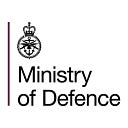Reflections from a Military Chaplain on Operations
Padre Richard Hall, Op TRENTON 6
The key to chaplaincy is engagement with soldiers. Through simple presence, relationships are formed, and trust is built. One of the privileges of chaplaincy in the Army is that soldiers are never surprised to encounter a padre — in a Sangar, out on a task, in an office or a cookhouse. My experience suggests that, having had those regular encounters, soldiers are more likely to seek your support when life gets difficult.
In whichever location I found myself, the overriding and simple task was to find out what was going on — and to join in. I found myself pouring concrete in the early hours of the morning, helping with the construction of accommodation units, accompanying soldiers who were sick and playing sports with soldiers in their spare time. In all of these instances I had the privilege of listening to the soldiers’ niggles, gripes, hopes and fears.
A young infantryman said to me as we gazed out from his Sangar at semi-naked children playing in a stinking drainage ditch, “it makes you realise how much you take for granted back home”.
During the Mission I divided my time between Malakal and Bentiu to ensure that each location had a church service two weeks out of three. In each of the two main locations I had congregations for Holy Communion that varied from around 6–15 personnel, with a core of loyal attenders in each. Each location also benefitted from group prayer, worship and reflection provided by a regular Eucharist.
I was honoured to be asked to preach at the Ghanaian Battalion’s service in Bentiu, and also led a service for the Ghanaians in the Leer temporary operating base — utilising one of our newly constructed accommodation units as a church. Accompanied by other soldiers, I attended a variety of worships: with both Ghanaian soldiers and Ghanaian police, with UN civilians in Juba, and, most movingly, in a Roman Catholic church in the Malakal POC site. At the last location a small group of us also led some children’s activities during a Sunday morning service.
Comparison with other operational tours:
In South Sudan the context of the deployment has been the main difference. The political situation means that there is the potential for great instability but nonetheless, here it has felt that the main threat has been from the environment rather than from any enemy.
On previous tours chaplaincy has involved dealing with deaths of and life-changing injuries to our soldiers. On this tour the potential risk from accidents with vehicles and machinery, and from disease, was relatively much greater. This, I think, has impacted on the pastoral conversations that I have had with soldiers.
Here, most of those have related to bereavement, with the deaths of parents, grandparents and friends at home, and to difficulties and breakdowns in relationships with partners. On former tours, where comrades were getting killed and badly injured on a regular basis, those other pastoral issues perhaps were pushed aside to be dealt with on return home.
Another part of the context here has been working alongside other Troop Contributing Countries and UN civilians. For the Task Force, this has been both interesting and challenging at times. What will remain with me is the intensity and scale of the poverty suffered by our close neighbours here. For all my experience in other warzones I had never seen anything like this.
Find out where else the UK Armed Forces are deployed here:
